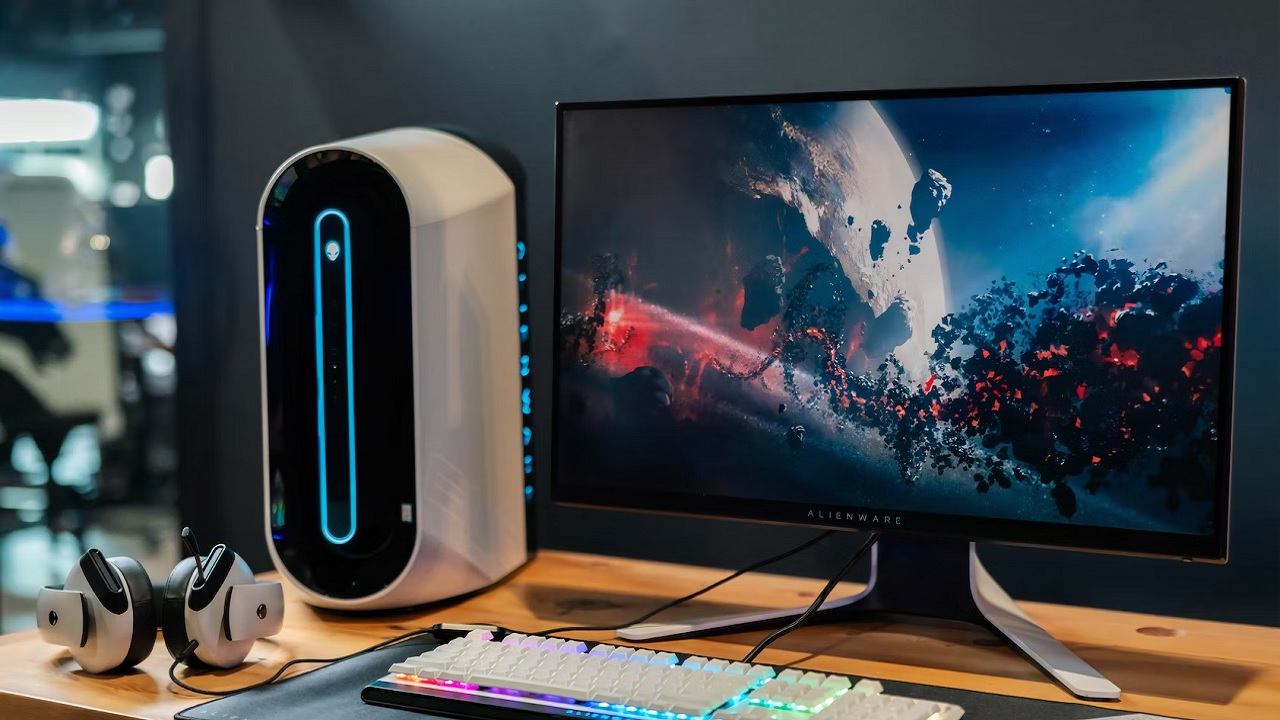Laptops have become an increasingly popular choice for users who require flexibility and mobility. However, for many people, a desktop computer remains the preferred option for a variety of reasons.
In this article, we will explore some of the reasons why you might choose a desktop computer over a laptop, including the advantages of a larger screen, better ergonomics, more powerful hardware, and easier upgrades and repairs.
Whether you are a gamer, a professional, or simply someone who values a powerful and reliable computing experience, there are many reasons why a desktop computer might be the right choice for you.
In This Article
KEY TAKEAWAYS
- A desktop computer can perform much better and at a much higher level than a laptop computer.
- One of the most significant reasons to choose a desktop computer is more options for upgradability.
- Desktop computers usually come with a good cooling system and therefore encounter lesser heat-related issues in comparison to a laptop computer.
- Unit cost and repair cost of desktop computers are lower than laptop computers.
The Top 10 Reasons to Choose a Desktop Over a Laptop:

1. Number of Ports
A laptop is a compactly designed computer. Space management is a major concern to every laptop manufacturer.
A laptop cannot offer as many USB ports, as a desktop can.
Having more numbers of ports a user can easily attach multiple peripherals like mouse, keyboard, printer, scanner, etc in a desktop at a time.
But in a laptop, a user can only attach two or three peripherals with the system.
A laptop usually comes with two or three USB ports; whereas a desktop offers 5 to 6 USB ports.
2. Number of Displays
The size and number of displays in a desktop is not fixed.
The user can choose the size of the display according to his needs and he can also attach an extra monitor or projector externally to the system.
In a desktop, a user can attach multiple displays.
But in a laptop one can attach multiple displays, but cannot change the size of the primary display of the system.
3. Battery
A laptop runs on a rechargeable battery. After every 3 to 3.5 years the user has to replace the rechargeable battery with a similar one.
The price of the battery is also high. Whereas being run on direct power supply, a desktop PC doesn’t need any rechargeable battery.
4. Processor
A similar processor can provide both stable and powerful performance in a desktop, in comparison to a laptop.
This is mainly because the clocking frequency of a laptop processor has to be in a certain limit to avoid overheating issues.
A desktop can run and perform very fast in comparison to a laptop of similar configuration.
5. Performing Ability
All laptops come with a small and compact space. The inner components of a laptop are also smaller in comparison to that of a desktop.
The smaller component of the laptop indirectly affects the performance of the system.
So a desktop can offer smoother and faster processing than a laptop of similar specification.
6. Upgradeability
A laptop offers limited room for up gradation. Whereas one can totally modify and can easily update a desktop.
Only a few laptops come with RAM and hard disk up-gradation facilities and the process of up-gradation is very complicated in a laptop.
On the other hand, the up-gradation process of a desktop is too easy that a beginner can do it with some basic knowledge.
The price of the components of a laptop is also higher than that of a desktop.
7. Cooling
A desktop computer can offer great cooling to the system. This feature is very helpful to the processor to run at a high frequency.
Even one can add multiple fans or liquid cooling in a desktop. But a laptop cannot offer such a cooling facility for its compact size.
8. Graphics
In this era of gaming and 4K videos, graphics play a major role.
Laptop usually does not support more than two graphics cards which make the display an inferior one.
But on a desktop one can attach multiple GPUs of advanced configuration to enjoy games and 4K videos with the great visual effects.
9. Longevity
A desktop usually has more longevity than a laptop.
Being more powerful and being easily updated a desktop can easily serve the users at least 8 to 10 years with some minor changes.
But having limited update options, a laptop can serve only for 4 to 5 years. After this period, the user has to replace the laptop with a new one.
10. Repairing Cost
The repair cost of a laptop is too high than a desktop.
Being compactly designed a laptop always needs a technical expert if any hazard occurs and the parts of a specific laptop are not always easily available in the stores.
On the other hand, a beginner can repair a desktop and can get rid of any hazard with the help of some books or YouTube.
The components of a desktop are easily available in the stores. So the repair cost of a desktop is too less than that of a laptop.
Conclusion
Desktop and laptop both have some positive aspects and some negative aspects.
The user has to choose between them depending upon the purpose and the quality of the job, he expects from the product.
A laptop can easily be carried. If a user needs to travel place to place and he always needs a computer, then a laptop is a better option for him.
Else, for home, business places, gaming purposes, and various institutions should always go with a desktop.